Treasure Valley Cannabis Company is based in Oregon with a dispensary located in Ontario, as well as several growing and processing spaces around the state. Launched in October 2020 by owner/operator Jeremy Archie, the business has expanded tremendously over time, advancing from a single retail outlet to a vertically integrated powerhouse of an operation that employs over 60 individuals between the shop and various farm and lab locations.
Treasure Valley’s farms encompass over 100,000 square feet of combined greenhouse space as well as four separate outdoor gardens specifically geared toward generating fresh frozen flower for solventless processing. The Leaf team visited one of Treasure Valley’s locations: a farm with 4,000 outdoor plants and 3,000 more in greenhouses in Jacksonville.
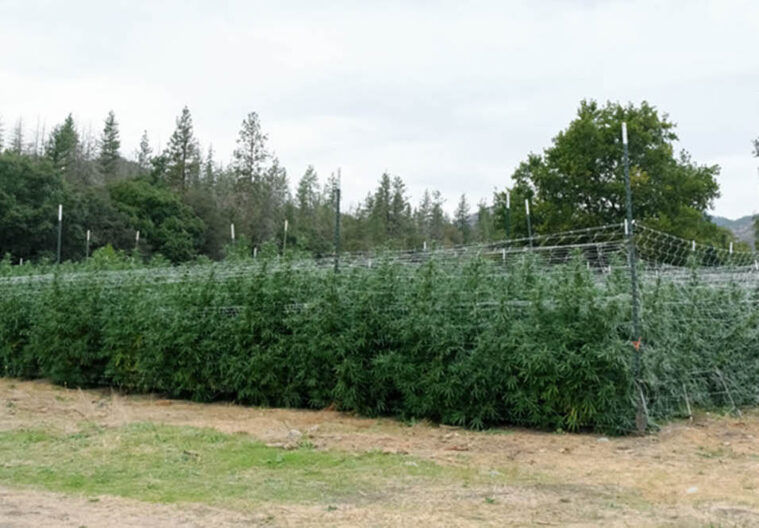
“This location has been a perfect setting for the farm,” Archie pointed out. “Our state isn’t known for having (many) dry spots; they are only so big. But southern Oregon has been a utopia for sunshine and outdoor garden space.”
Walking among the fully flowered Cannabis plants and taking in the breathtaking sights and smells, utopia feels like a fitting descriptor.
Zach Matthews, cultivation manager, was midway through running a “wash test” when the tour started. For those unfamiliar, a wash test assesses the general viability of a cultivar for processing by agitating a small portion of flower (usually a few grams in smaller pieces) inside a container filled with ice water to see how many trichome heads will “dump” from the buds. Larger amounts of resin present at the bottom of the jar indicate that a strain will yield higher quantities of hash when put through solventless extraction.
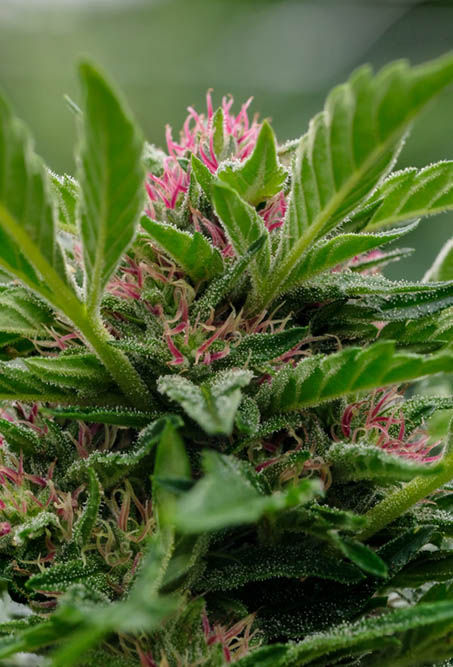
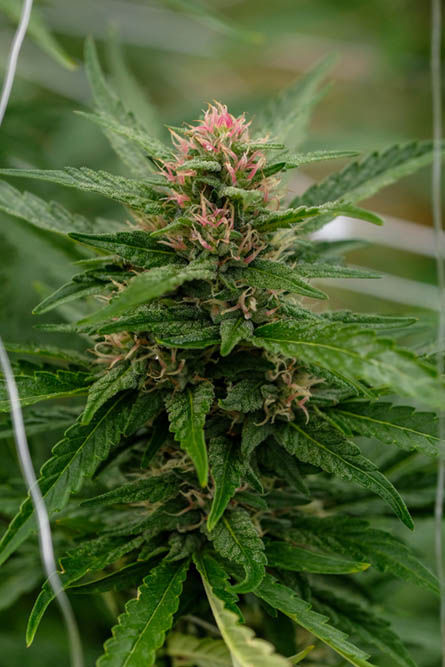
“We are looking for strains that are going to wash,” Matthews explained. “We’re going to have everything from carts to rosin to sugars, all types of different stuff, but we’re focusing on creating high-quality solventless options for the market.”
When it comes to strain selection for the garden, Treasure Valley aims for uniqueness of expression, consumer trends and overall feasibility for solventless processing.
“We are actively working on expanding the amount of plants that yield higher for hash currently,” Archie explained. “I’m trying to bring things to the market that not everyone else has. I would say that we’re blessed with both cuts from close friends and stuff that we have hunted and found on our own.”
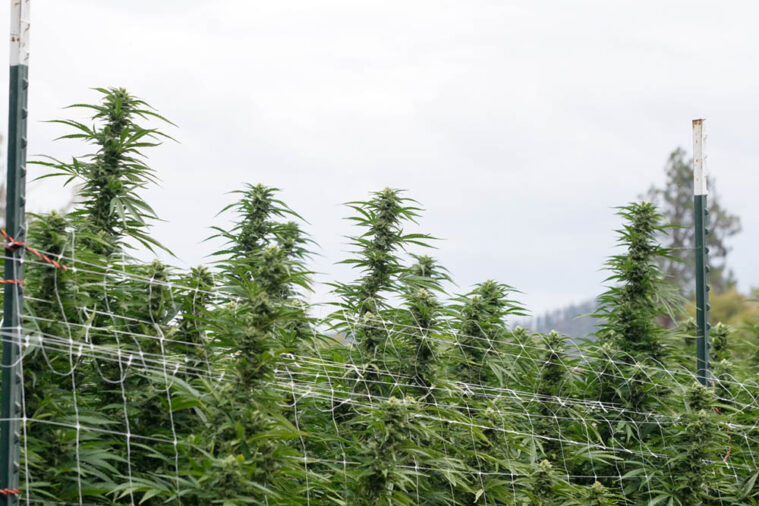
One such strain, Biscotti Chunks, is a cross of Biscotti and Fatso bred by Cannarado Genetics. Featuring a profile best described as candied funk, the fully flowered plant exudes tones of freshly baked dough and pastries coupled with an herbaceous aura of garlic-tinged raunch.
Grape Guava (Grape Tallymon x Strawberry Guava) by Bloom Seed Co. is another such cultivar. Characterized by a borderline obnoxious scent of freshly squeezed white grapes and succulent mixed berries, the strain has turned out to be a hefty hash yielder for the farm. Coming in at a whopping 7% return post-harvest (from wet flower weight to hash weight), the plant is considered top tier in terms of hash production.
Other standout genetics seen on the tour included Honey Banana, two different phenos of Tallymon, Papaya OZ Melon, Hashburger, Madd Fruit, Rainbow Beltz x Sour Diesel, Sour Papaya, Chem De La Sour, and Red Smoothie — and that’s not even encapsulating half of the lineup. By working seeds from stock to find farm-exclusive phenos and sourcing specific cuts that meet flavor or production criteria, the company has curated a diverse lineup of cultivars for its future menu.
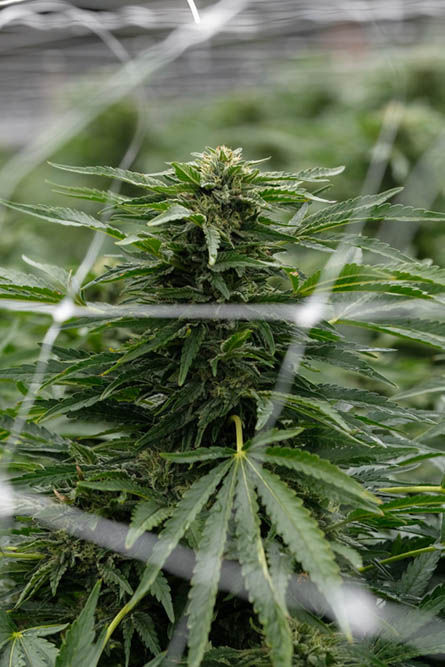
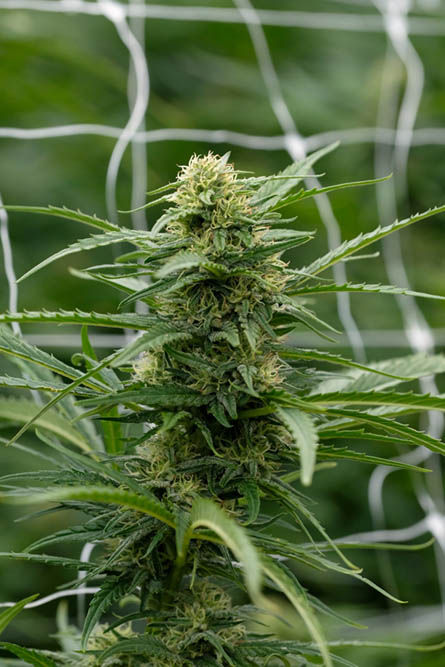
In terms of growing practices, Treasure Valley utilizes a blended style of cultivation consisting of organic supplements, native soil and some bulk base nutrients with a minor amount of top dressing and organic foliar sprays for maintenance. They find this method promotes some of the best parts of organic horticulture, like cleanliness of smoke and natural flavor, while providing the yield and workflow advantages that can come from synthetic or hybridized programs. It’s important to note that plants are only harvested for concentrate production based on trichome maturity and color, so the crew meticulously reviews each strain with a microscope as harvest time approaches.
“All I want is to be able to work smarter and continue to build on this time and experience in space,” Archie noted. “We are more focused, structured and scheduled than ever before, all while keeping quality over quantity in mind.”
At the end of the day, Treasure Valley Cannabis Company is one of the largest dispensaries in the state in terms of sales, so it’s no surprise to see the intention and volume of work that goes into creating its in-house products. For consumers looking for a pirate-sized bounty of quality Cannabis products, X marks the spot on Treasure Valley.
Treasure Valley Cannabis Company’s Jacksonville Farm
Signature strains: Biscotti Chunks, Grape Guava
Farm size: 4,000 outdoor plants and 3,000 in greenhouses
Employees: 60 (company-wide)









